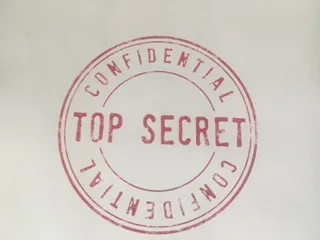I Can Keep a Secret!
Sometimes you want to handle an issue quietly, without making it public. Some situations need sensitivity. Some matters you don’t want to discuss in open court. That is when you need confidentiality for the process.
Confidentiality is an ancient and well-warranted social value. Kay Redfield Jamison
If you have a conflict that you want to resolve, but you don’t want to take the matter to court because you don’t want it be made a public record, professional mediation might the choice for your conflict resolution process.
A professional, trained and qualified mediator can help parties find resolutions to disputes, without making them public. In fact, we are professional and legally bound to keep confidences.
In California (and many other regions) mediation is a confidential process. Participants and mediators usually sign a confidentiality agreement, but even if they don’t the law is clear; confidentiality is an integral part of the mediation process. The things that are said, discovered, disclosed, or agreed to during mediation are not admissible or enforceable in court, and the mediator or other parties cannot be compelled to disclose what occurs during mediation.
There are some exceptions to confidentiality, but the law dictates that those be disclosed before mediation begins so that all the parties have informed consent to continue. For example, a mediator who is also a mandatory reporter of child abuse (as I am) will be clear about that exception.
Mediators are not the confidentiality police and we can’t enforce silence outside of sessions but can assure our clients that the process itself is confidential.
If they choose, once an agreement is made in mediation, the parties in a mediation can opt to make that agreement document admissible and enforceable, essentially waiving the confidentiality to allow the agreement to be put on record, but that is 100% voluntary. That decision does not need to be made until an agreement is reached. Confidentiality is a very important element of the mediation process.
Esther DeWitt, M.S., CAMS, is a college professor and an organizational psychology practitioner specializing in conflict, emotional management and leadership issues. She is a Credentialed Mediator and Certified Anger Management Specialist. Her services include mediation, leadership and organizational consulting and training, anger management coaching, and curriculum and material development.
All rights reserved. Please do not reproduce without appropriately citing PeaceProf.
California EVIDENCE CODE SECTION 1115-1128
- Except as otherwise provided in this chapter:
(a) No evidence of anything said or any admission made for the
purpose of, in the course of, or pursuant to, a mediation or a
mediation consultation is admissible or subject to discovery, and
disclosure of the evidence shall not be compelled, in any
arbitration, administrative adjudication, civil action, or other
noncriminal proceeding in which, pursuant to law, testimony can be
compelled to be given.
(b) No writing, as defined in Section 250, that is prepared for
the purpose of, in the course of, or pursuant to, a mediation or a
mediation consultation, is admissible or subject to discovery, and
disclosure of the writing shall not be compelled, in any arbitration,
administrative adjudication, civil action, or other noncriminal
proceeding in which, pursuant to law, testimony can be compelled to
be given.
(c) All communications, negotiations, or settlement discussions by
and between participants in the course of a mediation or a mediation
consultation shall remain confidential.


